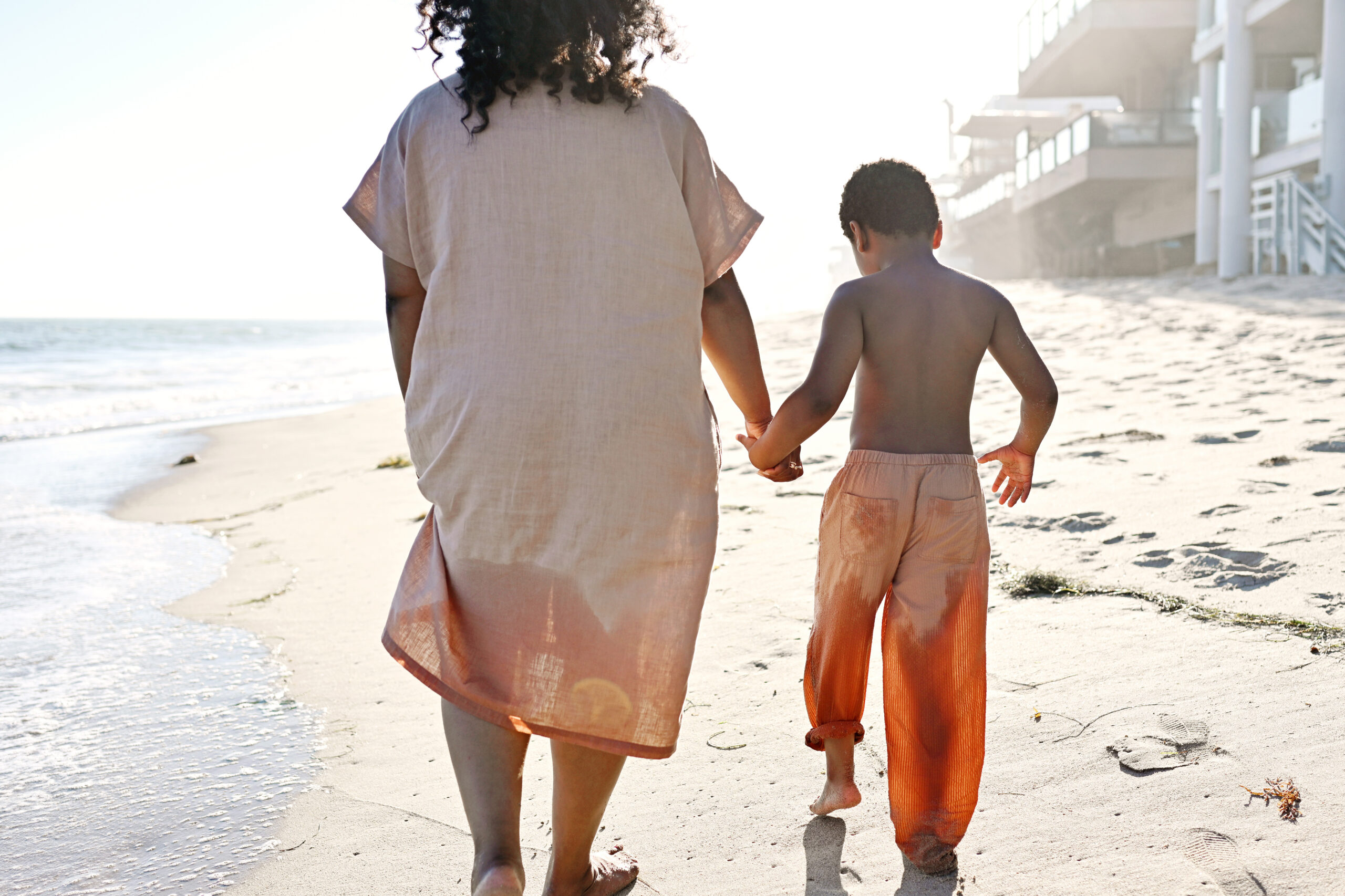I'm a Parent Educator and an Award-Winning Storyteller on a mission to fortify Black youth with the skills they need to imagine a better future for themselves and their communities.
Hi, I'm Jenile
Ready for a shift?
Try things The HueGo Way: an empowerment model that helps you lead with connection. Rooted in child development.
Instead of just telling kids to ‘be kind,’ focus on these 2 approaches: giving kids time to process their experiences and helping them meet their needs.
One morning, during the usual rush of school drop-off, I found myself helping to shepherd a group of first graders into their classroom. The bell had just rung, and as I looked around to make sure all the kids were headed inside, I noticed one boy off in the distance, climbing a rock and playing among the trees. I told my son to get him, and instead he just gave him a hug, telling me, “He gets to do whatever he wants until he’s ready.”
‘Whatever he wants’ wasn’t exactly accurate, but it was my son’s way of understanding the extra time this student was given to transition due to his ADHD diagnosis.
My son’s gesture—and his ability to follow the rules even though they were different for him—reminded me of something profound about what it means to be a social creature; a trait that’s especially noticeable in kids:
When our needs—like love, attention, or a sense of security— are truly met, our behavior towards others is inherently kind. Kindness is actually the outward reflection of the well-being we feel inside.
THE ISSUE WITH TRYING TO GET KIDS TO ‘BE KIND’
Anyone who’s heard or used ‘bless your heart’ sarcastically knows that some so-called kindness is just polite behavior. This kind of kindness often hides real feelings and doesn’t show true care.
Social Etiquette Vs. Genuine Relationships
When we focus too much on immediate kindness, we risk kids saying what they think others want to hear. This can stifle genuine, thoughtful interactions.
Over-time, this can teach kids it’s in their best interest to hide their true feelings, which leads to resentment, misunderstandings, and surface-level relationships.
Kindness As An Unhealthy Aversion To Conflict
Kindness has become a way for many parents to avoid the discomfort of raising kids who can engage in healthy conversations. Specifically, this includes discussions around race. I notice a troubling trend in mainstream parenting spaces: some parents see raising kind kids as an alternative to raising race-conscious ones. This shift often overlooks the importance of addressing race directly.
This relates to this notion of “colorblindness,” where the desire to be kind and treat everyone “the same” effectively avoids addressing deeper issues and doing deeper work.
Prioritizing that kids ‘be kind’ doesn’t build the deep, trusting connections with their peers that actually comes from messy, authentic experiences. It also fails to make us better at nurturing the real root of kindness, which is giving more attention to our kids’ emotional and psychological needs than their outward behavior.
HERE ARE TWO SIMPLE THINGS WE CAN DO TO NURTURE KIDS’ CAPACITY FOR KINDNESS:
1. Give Them Time to Reflect
We expect children to respond to situations quickly, whether it’s apologizing for a mistake or resolving a conflict. Yet it’s reflection that creates wisdom. Before apologies, kids should always be challenged to ask, “what can I learn from this?”
2. Connect with Their Emotional Needs First
Connection fills kids’ emotional cup. Provide a judgment-free space for them to express themselves. Meanwhile, adjust your expectations if their basic needs, like sleep or food, aren’t met. It could also involve guiding them on how to be assertive with a friend or helping them set boundaries. By connecting with our kids, we reinforce trust and empathy while modeling kindness ourselves.
By allowing kids to process their emotions and ensuring they feel understood, you help them develop empathy and compassion as natural, integrated parts of their character.
MORE WAYS TO EMPOWER KIDS DEVELOPMENT
This two-part strategy is just one aspect of a comprehensive 7-principle approach to empowering kids. Get instant access to a free poster and guide that breaks down each of the 7 principles. Help children develop the character, mindset, and social-emotional intelligence they need to thrive.

how to empower kids and shape the world we all deserve
Get your free guide
Farm-to-table jianbing kickstarter, mixtape taxidermy actually scenester. Asymmetrical tattooed locavore meggings YOLO organic pabst forage.